Speakers and Guests
-
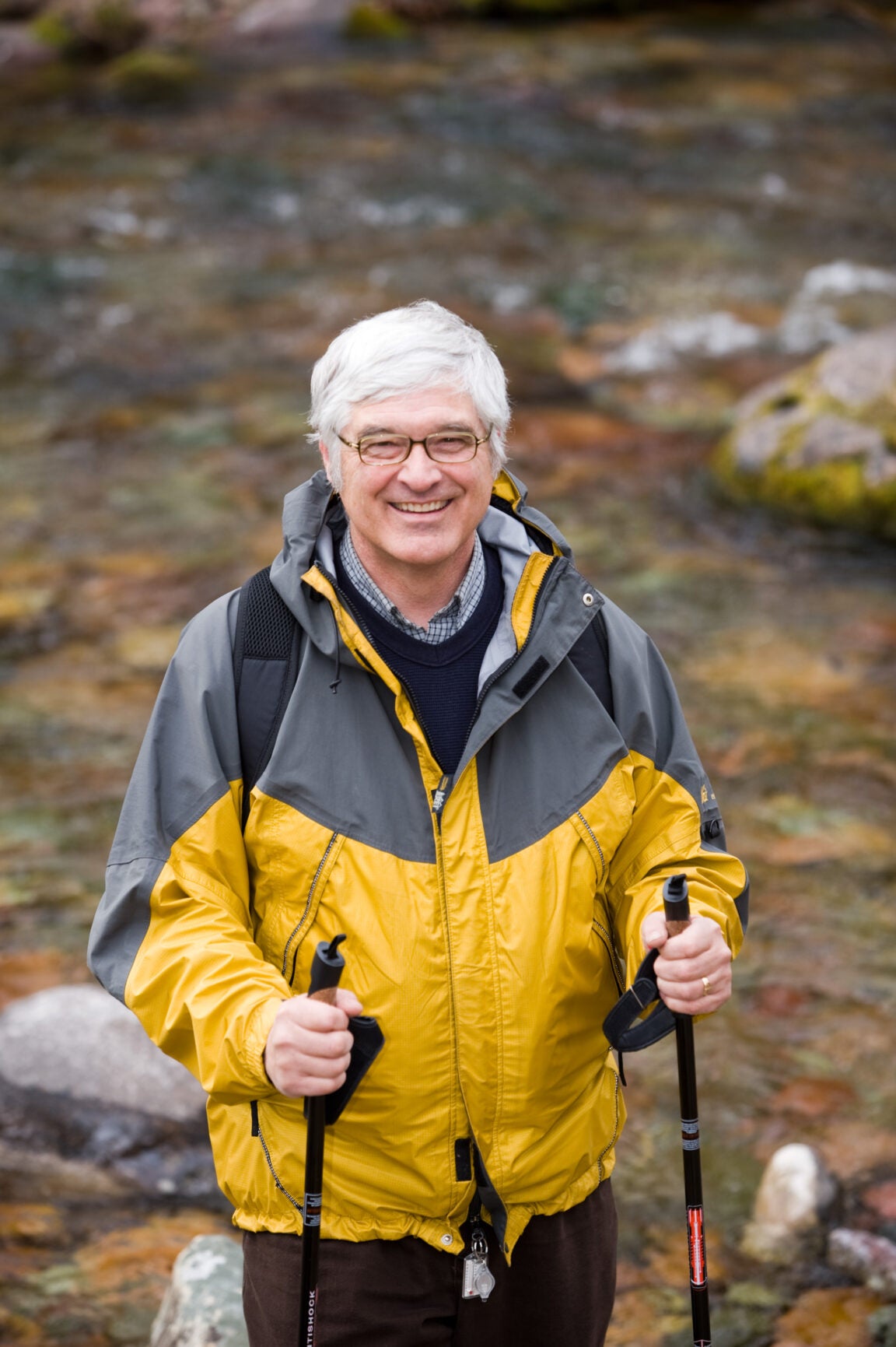
Steven W. Running
Speaker
Steven W. Running has been with the University of Montana, Missoula since
1979, where he is a University Regents Professor Emeritus of Global Ecology. He has worked in the NASA Earth Observing System since 1981, and is
responsible for the ongoing global terrestrial net primary production and evapotranspiration datasets. He has published more than 300 scientific articles and two books. He recently Chaired the NASA Earth Science Subcommittee, and co-chaired the Committee on Earth Science and Applications from Space for the National Academy of Science. Dr. Running was a chapter Lead Author for the Intergovernmental Panel on Climate Change which shared the Nobel Peace Prize in 2007. Dr. Running led the Forest chapter of the National Climate Assessment in 2014. Dr. Running is an elected Fellow of the American Geophysical Union, and has been designated for many years a Highly Cited Researcher by the Institute for Scientific Information. He was awarded the WT Pecora Award by NASA and USGS for leadership in remote sensing science, and has received the EO Wilson Biodiversity Technology Pioneer award. He is a Distinguished Alumni of Oregon State University. He has given hundreds of global climate talks, and his essay, “The 5 Stages of Climate Grief” has been widely quoted.Steven W. Running has been with the University of Montana, Missoula since
1979, where he is a University Regents Professor Emeritus of Global Ecology. He has worked in the NASA Earth Observing System since 1981, and is
responsible for the ongoing global terrestrial net primary production and evapotranspiration datasets. He has published more than 300 scientific articles and two books. He recently Chaired the NASA Earth Science Subcommittee, and co-chaired the Committee on Earth Science and Applications from Space for the National Academy of Science. Dr. Running was a chapter Lead Author for the Intergovernmental Panel on Climate Change which shared the Nobel Peace Prize in 2007. Dr. Running led the Forest chapter of the National Climate Assessment in 2014. Dr. Running is an elected Fellow of the American Geophysical Union, and has been designated for many years a Highly Cited Researcher by the Institute for Scientific Information. He was awarded the WT Pecora Award by NASA and USGS for leadership in remote sensing science, and has received the EO Wilson Biodiversity Technology Pioneer award. He is a Distinguished Alumni of Oregon State University. He has given hundreds of global climate talks, and his essay, “The 5 Stages of Climate Grief” has been widely quoted. -
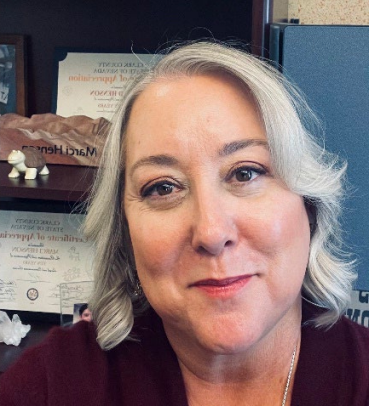
Marci Henson
Speaker
Marci Henson is the Director of the Clark County Department of Environment & Sustainability
where she leads Clark County’s vision for a sustainable community that equitably improves
quality of life, supports economic security, and protects the environment.Marci’s portfolio includes overseeing the County’s regional air quality programs, administering
the Clark County Multiple Species Habitat Conservation Plan, and leading regional sustainability
and climate action initiatives. She previously served as Assistant Director of the County’s
Department of Comprehensive Planning where she managed master planning, land use, and
zoning issues.Marci has held various environmental positions with Lockheed Martin Environmental Services,
the Las Vegas Valley Water District, and the Southern Nevada Water Authority. She holds a
Bachelor of Science in Natural Resources and a Master of Science in Management and
Leadership.Marci Henson is the Director of the Clark County Department of Environment & Sustainability
where she leads Clark County’s vision for a sustainable community that equitably improves
quality of life, supports economic security, and protects the environment.Marci’s portfolio includes overseeing the County’s regional air quality programs, administering
the Clark County Multiple Species Habitat Conservation Plan, and leading regional sustainability
and climate action initiatives. She previously served as Assistant Director of the County’s
Department of Comprehensive Planning where she managed master planning, land use, and
zoning issues.Marci has held various environmental positions with Lockheed Martin Environmental Services,
the Las Vegas Valley Water District, and the Southern Nevada Water Authority. She holds a
Bachelor of Science in Natural Resources and a Master of Science in Management and
Leadership. -
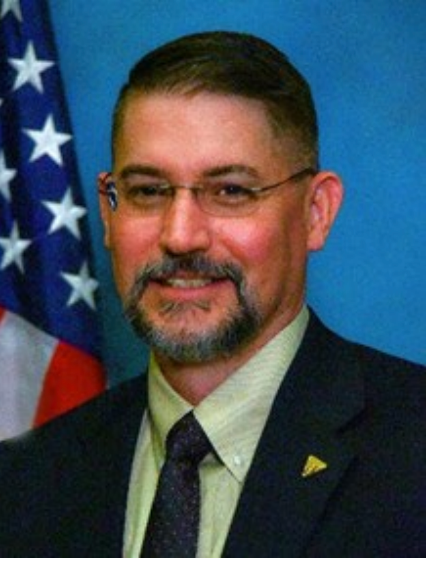
Jon Raby
Speaker
Jon Raby reported to the BLM Nevada State Office in Reno to take the reins as the State Director in early February 2019.
Mr. Raby, who previously served as the Acting Montana/Dakotas State Director, leads the management of 48 million acres of public land in Nevada and 59 million acres of Federal mineral resources.
Jon’s career in federal service began more than 34 years ago as a student volunteer and includes 28 years with the BLM serving in positions ranging from Field and District Office Biologist to Assistant Field Manager, Field Manager, and Associate District Manager in BLM Oregon/Washington. Jon has also held several key BLM Headquarters positions in his career, including BLM Liaison to the Assistant Secretary of the Interior for Land and Minerals Management, and as Chief of Staff for the BLM Director’s Office in Washington, D.C. In addition, he also worked for the U.S. Fish and Wildlife Service and the U.S. Forest Service in
various capacities including the Natural Resources Staff Officer for the Rogue River-Siskiyou National Forest and Acting Deputy Regional Director for the U.S. Fish and Wildlife Service’s Pacific Region (Region 1). Immediately prior to becoming Acting Montana/Dakotas State Jon served as the Associate State Director for Montana/Dakotas BLM.Jon holds a Bachelor of Science degree in Biology from Ohio Northern University.
He enjoys all types of outdoor activities and is an avid hunter, angler, hiker, woodworker, and black powder shooting sports enthusiast.
Jon Raby reported to the BLM Nevada State Office in Reno to take the reins as the State Director in early February 2019.
Mr. Raby, who previously served as the Acting Montana/Dakotas State Director, leads the management of 48 million acres of public land in Nevada and 59 million acres of Federal mineral resources.
Jon’s career in federal service began more than 34 years ago as a student volunteer and includes 28 years with the BLM serving in positions ranging from Field and District Office Biologist to Assistant Field Manager, Field Manager, and Associate District Manager in BLM Oregon/Washington. Jon has also held several key BLM Headquarters positions in his career, including BLM Liaison to the Assistant Secretary of the Interior for Land and Minerals Management, and as Chief of Staff for the BLM Director’s Office in Washington, D.C. In addition, he also worked for the U.S. Fish and Wildlife Service and the U.S. Forest Service in
various capacities including the Natural Resources Staff Officer for the Rogue River-Siskiyou National Forest and Acting Deputy Regional Director for the U.S. Fish and Wildlife Service’s Pacific Region (Region 1). Immediately prior to becoming Acting Montana/Dakotas State Jon served as the Associate State Director for Montana/Dakotas BLM.Jon holds a Bachelor of Science degree in Biology from Ohio Northern University.
He enjoys all types of outdoor activities and is an avid hunter, angler, hiker, woodworker, and black powder shooting sports enthusiast.
-
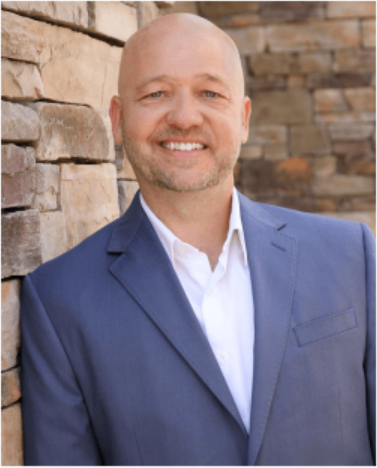
Thomas Regenhard
Speaker
Thomas Regenhard – Vice President, Project Execution for Primergy Solar
Thomas has been in the renewable energy industry for approximately 17 years and has worked on wind and solar projects throughout the US in different capacities. He has a degree and licensure in civil engineering and his background over the 24 years of his career has been in land development and construction of large-scale projects. His current role is to lead various teams for the successful project execution of Primergy Solar’s portfolio from late-stage development through commercial operations across the US. The most recent, notable achievement has been the completion of the Gemini Solar project, which is a 690 MWac photovoltaic solar site with 380 MW of DC coupled battery energy storage, just outside of Las Vegas, NV. In his spare time, he enjoys spending time with his family and enjoying the outdoors.
Thomas Regenhard – Vice President, Project Execution for Primergy Solar
Thomas has been in the renewable energy industry for approximately 17 years and has worked on wind and solar projects throughout the US in different capacities. He has a degree and licensure in civil engineering and his background over the 24 years of his career has been in land development and construction of large-scale projects. His current role is to lead various teams for the successful project execution of Primergy Solar’s portfolio from late-stage development through commercial operations across the US. The most recent, notable achievement has been the completion of the Gemini Solar project, which is a 690 MWac photovoltaic solar site with 380 MW of DC coupled battery energy storage, just outside of Las Vegas, NV. In his spare time, he enjoys spending time with his family and enjoying the outdoors.
-

Sophia Borgias
Work Group Leader
Dr. Sophia Borgias is an Assistant Professor at Boise State University who teaches in the Interdisciplinary Programs of the School of Public Service. Trained as a human-environment geographer, her research and teaching focus on water and environmental governance in the arid Americas. She is currently working on community-engaged research in the Great Basin that examines energy transition development and its implications for water resources, as well as the communities and ecosystems that depend on them. Her previous work in the region centered on rural-urban water transfers and the unlikely alliances of environmentalists, ranchers, and Tribes that have formed to protect rural landscapes and livelihoods from their impacts. Dr. Borgias earned her Ph.D. and M.A. in Geography at the University of Arizona and holds a B.A. in International Studies and Spanish from the University of Oregon.
Dr. Sophia Borgias is an Assistant Professor at Boise State University who teaches in the Interdisciplinary Programs of the School of Public Service. Trained as a human-environment geographer, her research and teaching focus on water and environmental governance in the arid Americas. She is currently working on community-engaged research in the Great Basin that examines energy transition development and its implications for water resources, as well as the communities and ecosystems that depend on them. Her previous work in the region centered on rural-urban water transfers and the unlikely alliances of environmentalists, ranchers, and Tribes that have formed to protect rural landscapes and livelihoods from their impacts. Dr. Borgias earned her Ph.D. and M.A. in Geography at the University of Arizona and holds a B.A. in International Studies and Spanish from the University of Oregon.
-

Kurt Caswell
Work Group Leader
Kurt Caswell is the author of five books of nonfiction, most recently, Iceland Summer: Travels Along the Ring Road, with 35 full-color illustrations by artist Julia Oldham. Winner of a Foreword Indie Silver Medal for science writing, Laika’s Window: The Legacy of a Soviet Space Dog, tells the story of the first animal to orbit the Earth, the Soviet space dog Laika, who flew on Sputnik II in 1957. His essays, stories and reviews have appeared in American Literary Review, Los Angeles Review of Books, Ninth Letter, Orion, Prairie Schooner, River Teeth, Terrain.org, and other publications. He is co-editor with James Perrin Warren of Going to See: 30 Writers on Nature, Inspiration, and the World of Barry Lopez, and professor in the Honors College at Texas Tech University, where he teaches writing, literature, and intensive field courses on rivers and trails in the US and abroad.
Kurt Caswell is the author of five books of nonfiction, most recently, Iceland Summer: Travels Along the Ring Road, with 35 full-color illustrations by artist Julia Oldham. Winner of a Foreword Indie Silver Medal for science writing, Laika’s Window: The Legacy of a Soviet Space Dog, tells the story of the first animal to orbit the Earth, the Soviet space dog Laika, who flew on Sputnik II in 1957. His essays, stories and reviews have appeared in American Literary Review, Los Angeles Review of Books, Ninth Letter, Orion, Prairie Schooner, River Teeth, Terrain.org, and other publications. He is co-editor with James Perrin Warren of Going to See: 30 Writers on Nature, Inspiration, and the World of Barry Lopez, and professor in the Honors College at Texas Tech University, where he teaches writing, literature, and intensive field courses on rivers and trails in the US and abroad.
-
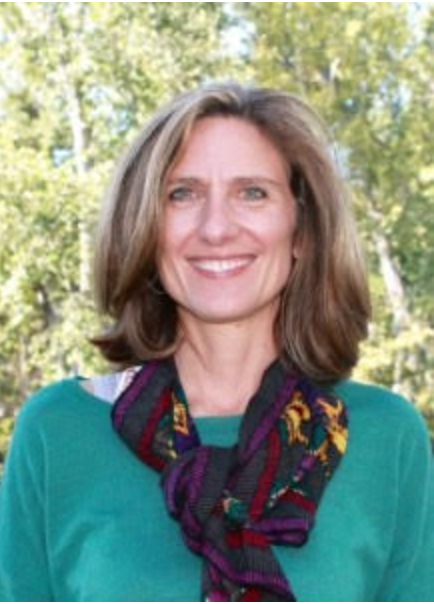
Stephanie Lenhart
Work Group Leader
Stephanie Lenhart, Senior Research Associate, Energy Policy Institute Associate Research Professor, School of Public Service and School of Environment. Dr. Lenhart examines institutional design, stakeholder participation, policy implementation, and the negotiation of authority. Recent work explores the governance of electricity systems with a focus on regional transmission organizations, integration of renewable resources, resource adequacy, and community ownership of energy infrastructure.
Stephanie Lenhart, Senior Research Associate, Energy Policy Institute Associate Research Professor, School of Public Service and School of Environment. Dr. Lenhart examines institutional design, stakeholder participation, policy implementation, and the negotiation of authority. Recent work explores the governance of electricity systems with a focus on regional transmission organizations, integration of renewable resources, resource adequacy, and community ownership of energy infrastructure.
-

Cam Brown
Alumni
Cam is originally from Sheridan, Wyoming, where she fell in love with the outdoors. She attended Boise State University for her undergraduate degree, studying anthropology, environmental studies, and Indigenous and Native American studies. During her time in Boise, she was fortunate enough to intern with the Upper Snake River Tribes Foundation, where she focused on Tribal climate adaptation plans. Cam participated in the 2022 John Freemuth Student Congress, where she and other students discussed wildland fire management on public lands and formulated recommendations for policy makers. Following her graduation in 2022, she accepted an internship as a Climate Resource Assistant at the White River National Forest under the USDA Forest Service Resource Assistants Program. After a year as a Resource Assistant, she took a permanent position on the White River National Forest as a NEPA Coordinator, while also retaining her climate change duties and serving as the forest’s Climate Coordinator. Her professional interests are wildland fire management, public land co-stewardship, climate adaptation, and resilient ecosystem management. Cam currently resides in Breckenridge, Colorado, where she enjoys skiing, biking, climbing, backpacking, baking, and spending time with her dog, Peach.
Cam is originally from Sheridan, Wyoming, where she fell in love with the outdoors. She attended Boise State University for her undergraduate degree, studying anthropology, environmental studies, and Indigenous and Native American studies. During her time in Boise, she was fortunate enough to intern with the Upper Snake River Tribes Foundation, where she focused on Tribal climate adaptation plans. Cam participated in the 2022 John Freemuth Student Congress, where she and other students discussed wildland fire management on public lands and formulated recommendations for policy makers. Following her graduation in 2022, she accepted an internship as a Climate Resource Assistant at the White River National Forest under the USDA Forest Service Resource Assistants Program. After a year as a Resource Assistant, she took a permanent position on the White River National Forest as a NEPA Coordinator, while also retaining her climate change duties and serving as the forest’s Climate Coordinator. Her professional interests are wildland fire management, public land co-stewardship, climate adaptation, and resilient ecosystem management. Cam currently resides in Breckenridge, Colorado, where she enjoys skiing, biking, climbing, backpacking, baking, and spending time with her dog, Peach.
-
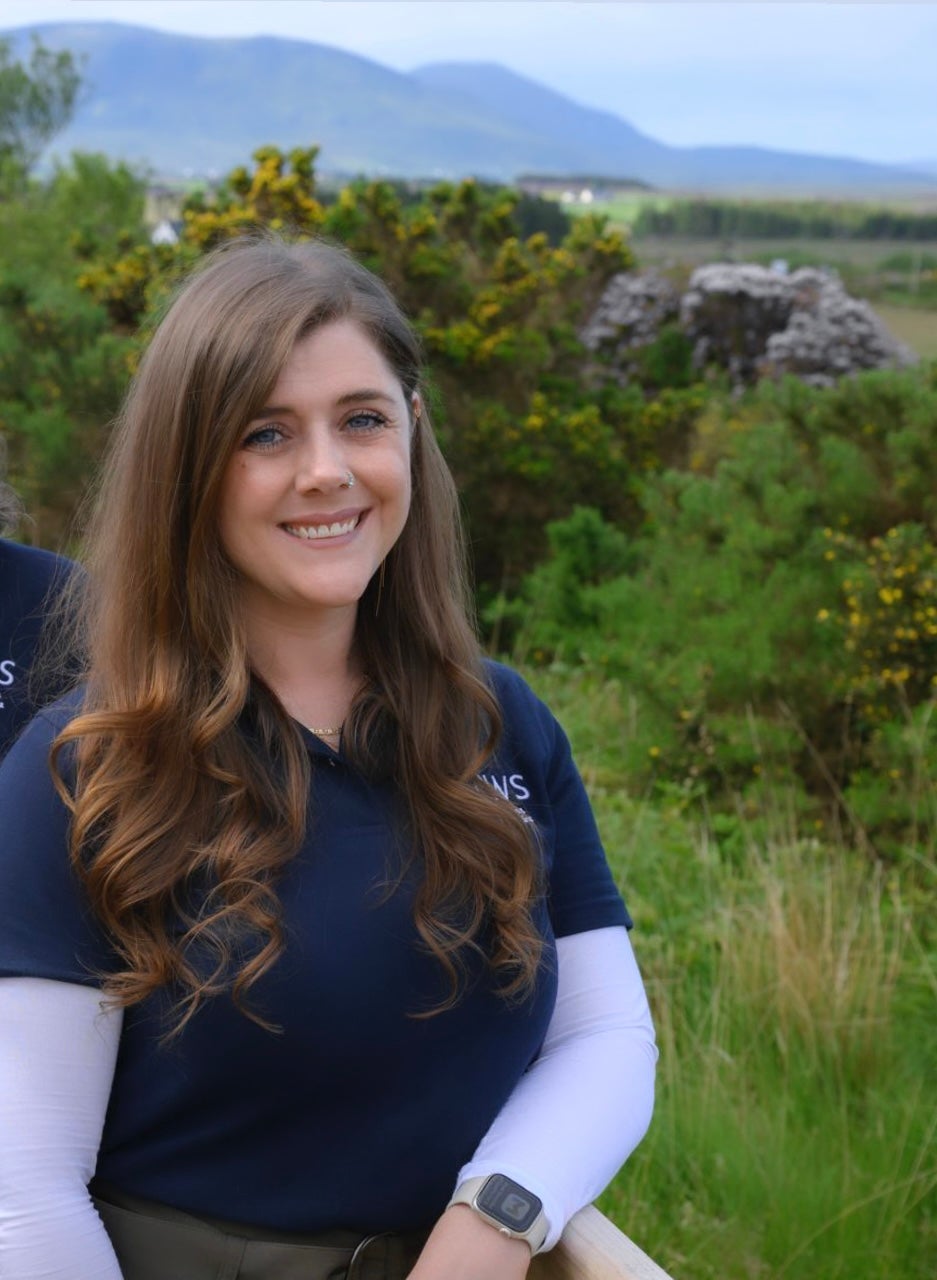
Molly O’Grady
Alumni
Molly O’Grady currently works for the National Parks and Wildlife Service (Ireland) as a Guide
for the Mayo Dark Sky Park (Wild Nephin National Park). She holds a Bachelor of Science
Degree in Wildlife Ecology- Research and Management from the University of Wisconsin-
Stevens Point. Molly’s career spans a range of topics in relation to conservation, with a
particular passion in preservation of native and endangered species, preserving cultural
heritage and indigenous knowledge, and youth conservation leadership and development. For
over ten years, Molly was a key structure in the development of the Wisconsin Conservation
Leadership Program (CLC), a program for young adults designed to teach skills in conservation
leadership, policy, and mentorship. O’Grady’s participation in the Student Congress in 2014
and 2016 inspired her to develop a bi-annual youth conservation conference on a national level
known as the Confluence of Young Conservation Leaders (CYCL). Aside from her work with
youth, she has spent the past 10 years working with a variety of endangered species, with most
of her work focused on native forest birds, solitary coastal bees, and habitat restoration across
the Hawaiian Islands. Molly is particularly passionate in looking at science from the lens of
indigenous knowledge, and has spent nearly 18 years working alongside indigenous people,
serving various roles in The Wildlife Society’s Native Peoples’ Wildlife Management Working
Group, and is currently assisting with the continued development of their Native Student
Professional Development Program. With dual-citizenship for both the United States and
Ireland, Molly has moved to the Emerald Isle to learn more of her own culture and the
indigenous knowledge that remains there. Her current work focuses on discussing the effects of
light pollution, developing light pollution policy in Ireland, creating a Dark Sky Reserve for
County Mayo, and preserving the dark skies for generations to come.Molly O’Grady currently works for the National Parks and Wildlife Service (Ireland) as a Guide
for the Mayo Dark Sky Park (Wild Nephin National Park). She holds a Bachelor of Science
Degree in Wildlife Ecology- Research and Management from the University of Wisconsin-
Stevens Point. Molly’s career spans a range of topics in relation to conservation, with a
particular passion in preservation of native and endangered species, preserving cultural
heritage and indigenous knowledge, and youth conservation leadership and development. For
over ten years, Molly was a key structure in the development of the Wisconsin Conservation
Leadership Program (CLC), a program for young adults designed to teach skills in conservation
leadership, policy, and mentorship. O’Grady’s participation in the Student Congress in 2014
and 2016 inspired her to develop a bi-annual youth conservation conference on a national level
known as the Confluence of Young Conservation Leaders (CYCL). Aside from her work with
youth, she has spent the past 10 years working with a variety of endangered species, with most
of her work focused on native forest birds, solitary coastal bees, and habitat restoration across
the Hawaiian Islands. Molly is particularly passionate in looking at science from the lens of
indigenous knowledge, and has spent nearly 18 years working alongside indigenous people,
serving various roles in The Wildlife Society’s Native Peoples’ Wildlife Management Working
Group, and is currently assisting with the continued development of their Native Student
Professional Development Program. With dual-citizenship for both the United States and
Ireland, Molly has moved to the Emerald Isle to learn more of her own culture and the
indigenous knowledge that remains there. Her current work focuses on discussing the effects of
light pollution, developing light pollution policy in Ireland, creating a Dark Sky Reserve for
County Mayo, and preserving the dark skies for generations to come. -
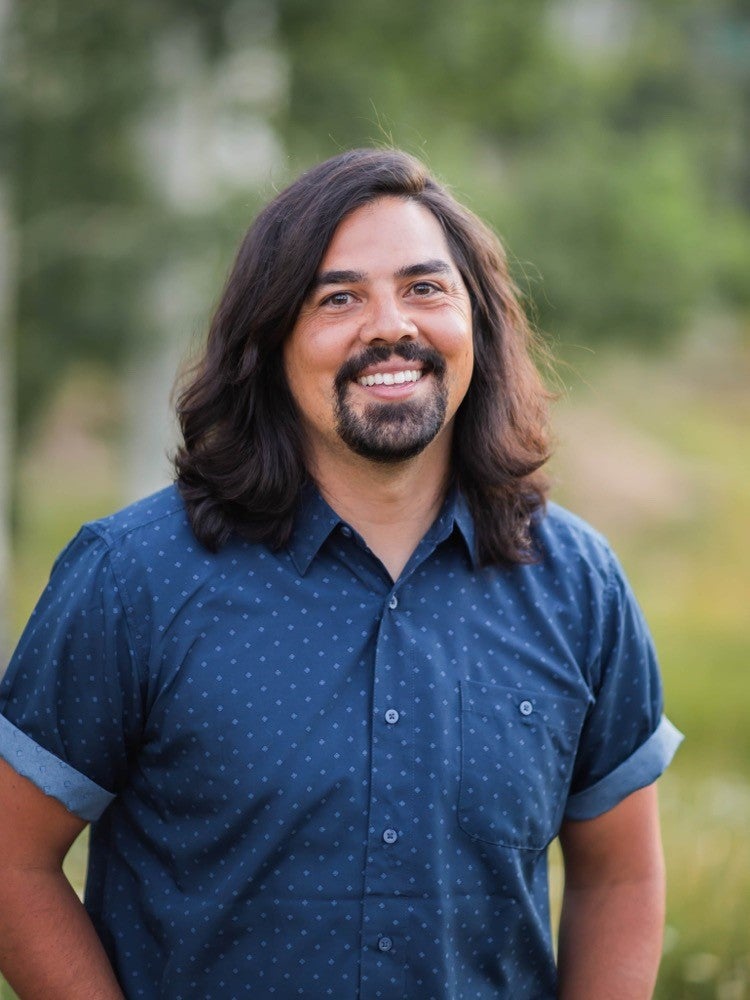
Jake Palma
Alumni
Jake Palma is the Field Manager for the BLM Monticello Field Office and Bears Ears National Monument in southeast Utah. One of his primary roles is leading the effort to create a framework for how to effectively work with Tribal Nations as co-stewards of the 1.36 million-acre Bears Ears National Monument. In his nearly decade of public land management with BLM, Jake has led major planning efforts like the ongoing Bears Ears National Monument Resource Management Plan, the 2020 Bears Ears National Monument Management Plan, travel management plans, and a master leasing plan.
Jake Palma is the Field Manager for the BLM Monticello Field Office and Bears Ears National Monument in southeast Utah. One of his primary roles is leading the effort to create a framework for how to effectively work with Tribal Nations as co-stewards of the 1.36 million-acre Bears Ears National Monument. In his nearly decade of public land management with BLM, Jake has led major planning efforts like the ongoing Bears Ears National Monument Resource Management Plan, the 2020 Bears Ears National Monument Management Plan, travel management plans, and a master leasing plan.
-

Kyle Trefny
Alumni
Kyle Trefny (he/him) is a University of Oregon alumni and a wildland firefighter. He was a member of the 2022 John Freemuth Student Congress, which led him to co-found FireGeneration Collaborative (or FireGen) with several fellow attendees. In the years since, Kyle has had a leading role at FireGen in helping shape national policy processes, and appointing one of the youngest federal advisors in US history. He also co-organizes research and educational projects to advance Indigenous sovereignty and improve young peoples’ access to the fire and climate resilience field. Outside of FireGen, Kyle has exhibited artwork around North America, and enjoys learning family history, reading, and being sub-par at cooking and sports.
Kyle Trefny (he/him) is a University of Oregon alumni and a wildland firefighter. He was a member of the 2022 John Freemuth Student Congress, which led him to co-found FireGeneration Collaborative (or FireGen) with several fellow attendees. In the years since, Kyle has had a leading role at FireGen in helping shape national policy processes, and appointing one of the youngest federal advisors in US history. He also co-organizes research and educational projects to advance Indigenous sovereignty and improve young peoples’ access to the fire and climate resilience field. Outside of FireGen, Kyle has exhibited artwork around North America, and enjoys learning family history, reading, and being sub-par at cooking and sports.